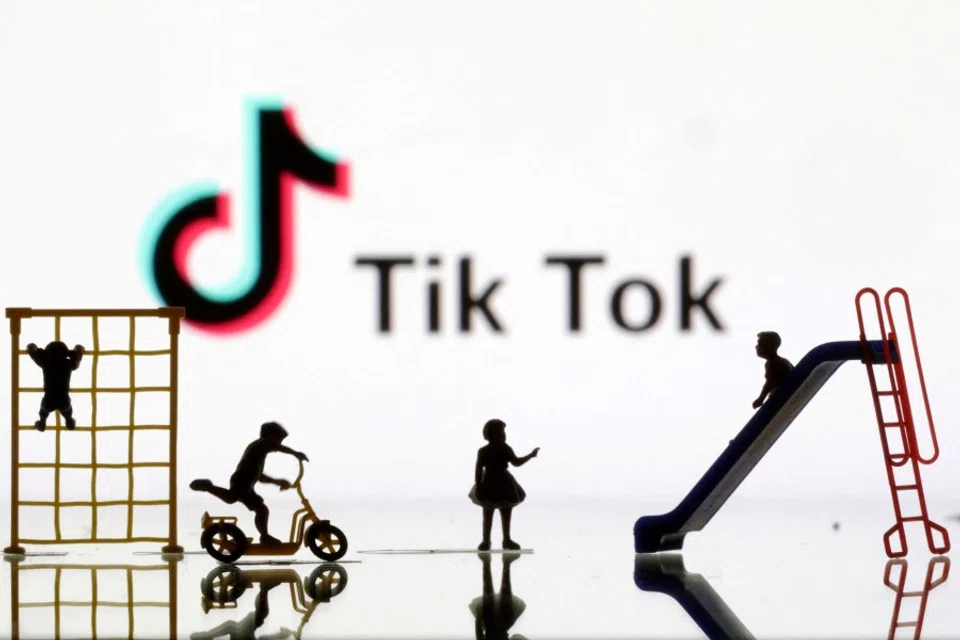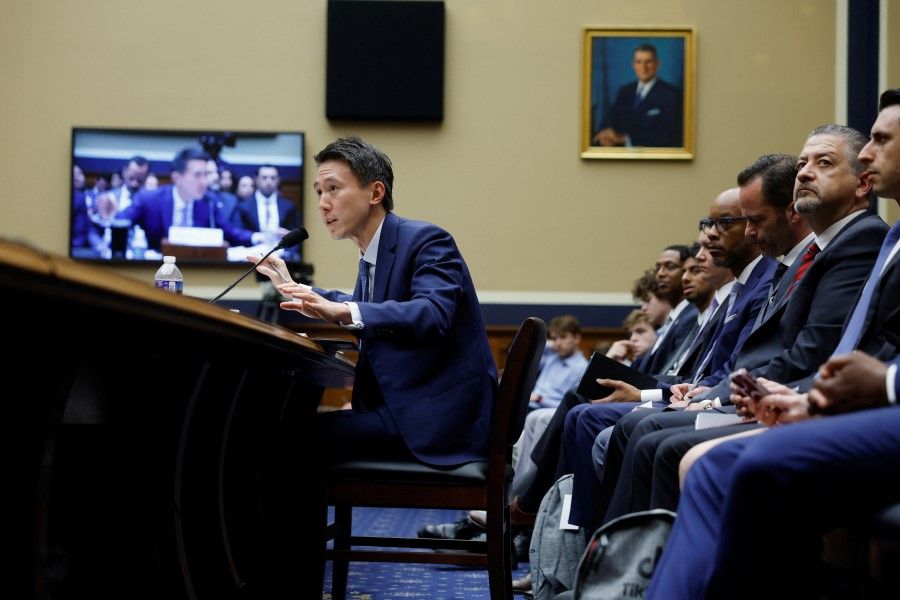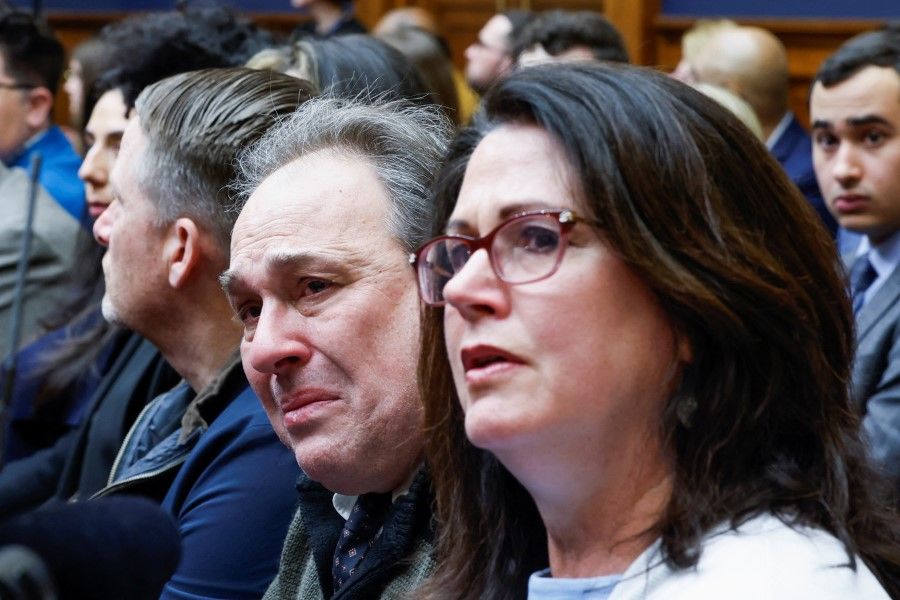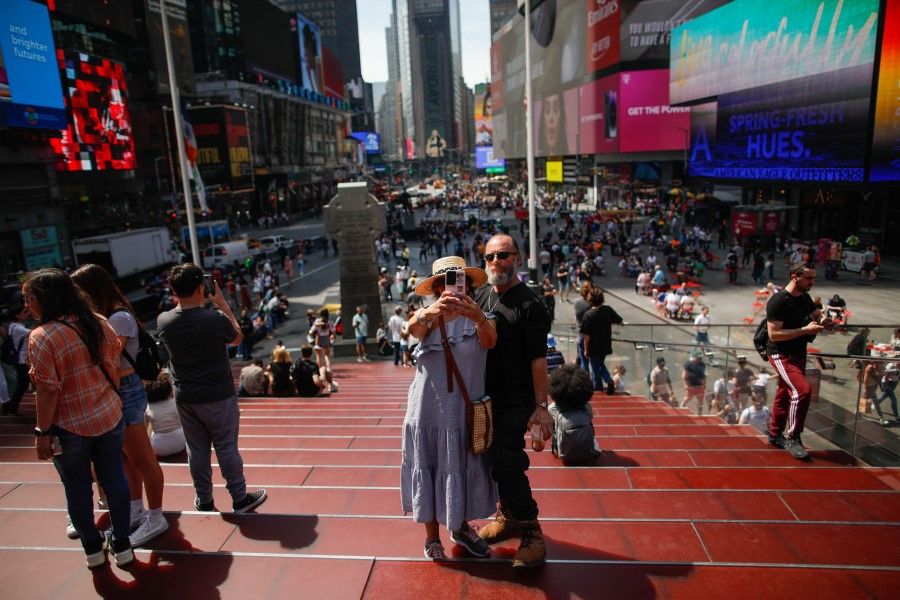US digital regulation dilemma: How to censor in a free society?

Capitol Hill's lengthy, wide-ranging, and at times grandstanding hearing with TikTok CEO Shou Chew produced a number of memorable moments and lines. One that sums up the whole day came from Representative Lisa Blunt Rochester (D-DE), who said: "I've not been reassured by anything you've said so far. I think frankly your testimony has raised more questions for me than answers."
Those questions had as much to do with social media itself as TikTok, even if TikTok has become the latest tip of the spear for legislative scrutiny. Indeed, Representative Greg Pence (R-IN-06) observed that they had had 32 hearings on privacy and Big Tech, yet thus far, no meaningful federal legislation. Representative Earl L. "Buddy" Carter (R-GA) said that his committee was "the most bipartisan committee in Congress". Bipartisanship is normally absent in Washington. Polarisation is often cited as the reason for inaction in Congress. But in this case, bipartisanship appears to be an insufficient condition for legislative action despite everyone agreeing, including sometimes the CEO himself it seemed, with his equivocal answers, that the app was a potential lever of Chinese influence.
Was the 32nd time a charm in terms of advancing comprehensive privacy legislation? Is a TikTok ban likely or was it just an attempt at gaining leverage over the company so that it reins in some of its more pernicious practices, such as promoting suicide videos to vulnerable individuals? Where is the public on these questions?
...the 18-34 year-old demographic that uses TikTok the most is also the most opposed to a ban...
Parsing the public opinion data
Members of Congress are elected in part to serve the public interest when the public might not have the best information. Indeed, critics of the Brexit referendum suggested that the complexities embedded in the referendum, and its ad-hoc nature, made this an unsuitable mechanism for determining whether the UK would leave the European Union. In general, though, public sentiment is a key ingredient in a democracy and acting in opposition to the public has risks for re-election.

What is the public view of digital regulation? It's hard to say. Recent polls have shown overall support for a TikTok ban (53% in one poll and 49% in another), but a high percentage (about one-third) of people say they aren't sure. Further, the 18-34 year-old demographic that uses TikTok the most is also the most opposed to a ban, with just 28% in favour and 40% opposed.
On the broader question of data privacy that all members of Congress also seemed to emphasise during the hearing, a recent YouGov poll also appears to indicate strong public support for more aggressive legislative efforts than we have seen to date.
A resounding 81% of Americans agree with the somewhat uncontroversial requirement that companies "provide users with easy-to-understand explanations of their data collection and use practices" but also support for measures like prohibiting the sale of online personal data, requiring companies to provide sufficient transparency on their algorithms, and implementing measures to prevent foreign interference in elections via social media. But what do these opinions mean? What is "sufficient" transparency?
As the MIT Tech Review puts it, "the dark secret at the heart of AI" is that "no one really knows how the most advanced algorithms do what they do" so is transparency going to help the average American draw inferences about whether an algorithm is odious or friendly? Isn't the US already implementing measures to prevent foreign interference? (Yes, it is.) Are individuals really willing to sacrifice the convenience of targeted ads for more privacy? Evidence suggests that they are not.
More than half of all US states have banned TikTok on government devices and more countries every day are taking the same measures, most recently Australia and the North Atlantic Treaty Organization.
Legislative action towards a ban
Although the public's views on a ban may appear supportive but also belie some inconsistencies or inability to manage tradeoffs, talk of a ban at the federal level continues and meanwhile, states are taking action in the face of this inaction.

More than half of all US states have banned TikTok on government devices and more countries every day are taking the same measures, most recently Australia and the North Atlantic Treaty Organization. Montana has advanced a bill that would sweepingly ban the app entirely, a move that TikTok has worried might spawn copycat legislation in other states.
The mental health consequences of excessive social media usage should not be dismissed, nor should the national security concerns. Policy, however, always entails tradeoffs in a cost-benefit calculation. In this case, there are certainly potential costs of using TikTok and other social media platforms, but there are also costs of a ban.
First, it isn't entirely clear how a ban would be enforceable. The government could try to mandate that internet providers block it from their service, and/or pressure Apple and Google to remove the app from their stores. Determined TikTokers could still sidestep these obstacles with a variety of steps, including virtual private networks, although the allure of TikTok is the ease of its use, so perhaps eventually users would tire of the inconvenience.

Further, TikTok is the tip of the iceberg. China is showing considerable prowess in the app numbers game, accelerating and finessing the art of app development in the hopes that some will catch on. And many have and are. All of these Chinese-owned apps will introduce the same data privacy concerns that legislators are concerned about with TikTok.
Having to play Big Brother over what should be a free speech issue is downright Orwellian and risks winning the battle of ideas and ideals but losing the war.
Doing what it has denounced?
But it is more problematic if the US is now engaging in an ideological and technological war with China, where it is the good guy and China is the autocratic bad guy. A ban on a social media app or apps has the flavour of censorship and hypocrisy, and of something that democracies criticise when non-democracies engage in it.
The proposed Restrict Act is more general and not app-specific, so it circumvents the problem of banning a specific app and then another one cropping up tomorrow, but its enforcement problem means talk of spying on friends to ensure that they are not using the app. Having to play Big Brother over what should be a free speech issue is downright Orwellian and risks winning the battle of ideas and ideals but losing the war.
